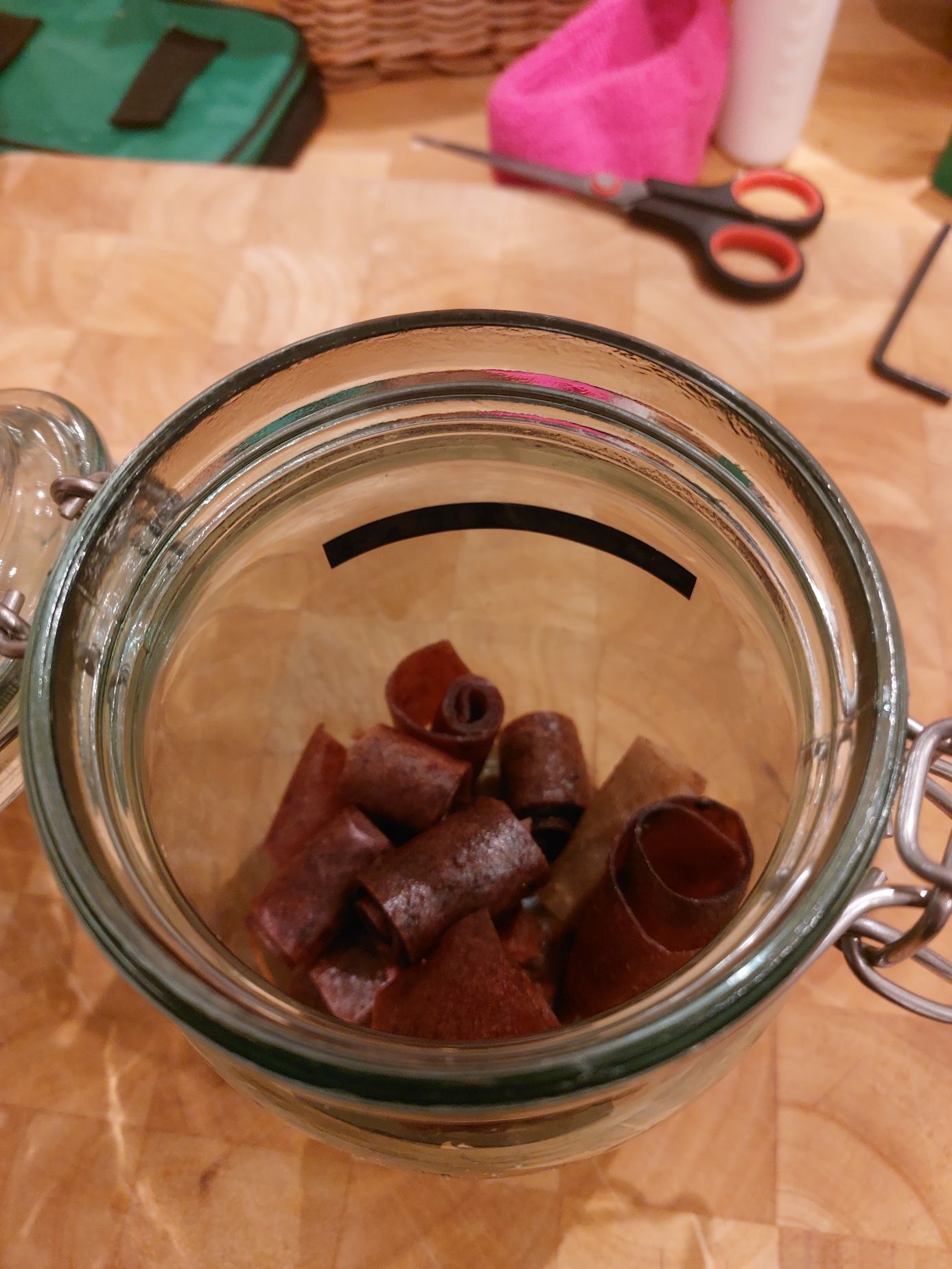We've made some FANTASTIC fruit leathers this year, earlier on we made some from plums and more recently we're onto apple fruit leathers, which are delicious with a touch of cinnamon.
And naturally all the fruits we've used have come from local trees for free, gifted, and with minimal sugar added (I find you do need some sugar) the actual up front cost of making these is pretty minimal.
They are VERY easy to make - look up the process online, just stew fruit for about 30 mins, then add a few extra ingredients and spread onto bake proof paper and bake at a VERY low heat - you need a GOOD oven that goes down to 70 degrees centigrade, ours does 60, and cook for a few hours.
They taste amazing, and keep for ages, and make great gifts!
Anyways, I got to wondering what the costs of making these things were....

Money Costs
-
Fruit: FREE!!!! Basically why we're making them!
-
Greaseproof paper: Tesco - £2.00 for 15M, you need about 30CM for a tray, so one roll will do you 45 trays, that's NOT A GREAT EXPENSE!
- Energy: Dehydrating requires running the oven at around 60°C. On average, a domestic oven running for 6–8 hours will cost between £1–£2 in electricity, that should be enough to dehydrate, depending on how liquid you make the original fruit stew. NB Gas, if we had it for the oven, would be around 4 times as cheap!
- Capital expense (trays): Our oven can fit five trays at once. Five decent trays may cost £50, so you'd have to do A LOT of fruit leathers to make up for this, given that we're highly unlikely to cook using five trays on the regular.
But overall Fruit leathers are pretty cheap, hard to put a price on the cost of a strip, as these vary in size too!
What can I say, we are rustic!
Time costs...
It's not very strenuous to make fruit leathers, but it is a bit of hands-on preparation and lots of waiting:
Preparation – Washing, chopping, and pureeing fruit for five trays takes around 45 mins.
Spreading and preparing trays – Another 15 minutes at least, it's quite an art.
Of course the dehydrating bit takes no time at all but you do have to be around towards the end of this so they don't dry out.
You might also not be happy about going out while the oven is on.
Finishing – Peeling off the sheets, cutting into strips, and storing: another 15–20 minutes.
All in all, you may be spending an hour of productive labour per batch. If your time is worth even £10 per hour, that's another "hidden" cost to factor in, though most people regard it as a leisure or hobby and not a job.
Conclusion – Worth It?
From a MONEY perspective they are well worth it, factor in the time and you're probably looking at par with shop bought ones.
But it's a great experience making them and you know what's in them, almost certainly less sugar than the shop ones.
And they make a GREAT present.
This activity will DEFO stay on my annual calendar, hopefully one can find the time to do several batches a year too...